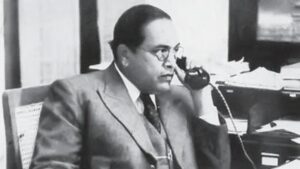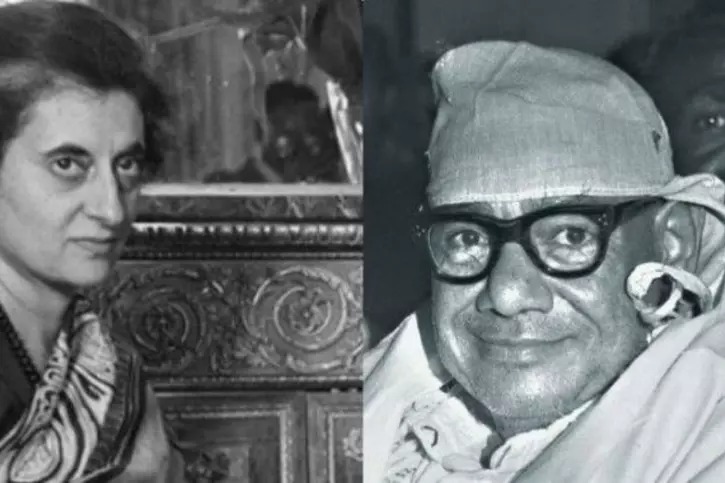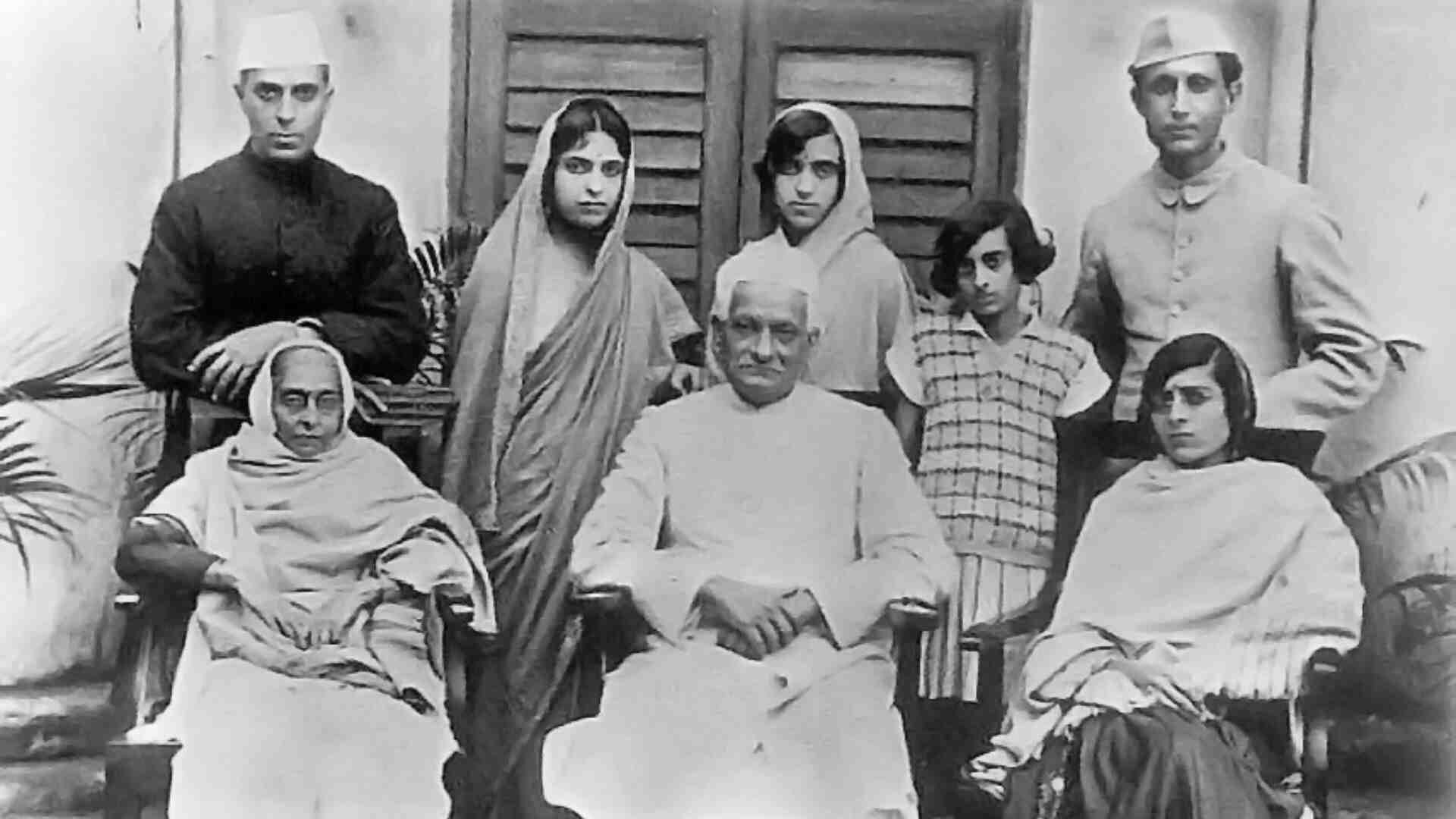From political heavyweights facing unexpected defeats to underdogs emerging victorious, electoral upsets have captivated the nation and redefined the political landscape. A look at some of the significant upsets in Indian elections.


The 1951-52 parliamentary election, a significant event in India’s democratic journey, saw an unusual outcome that surprised the nation. Dr. B.R. Ambedkar, a respected scholar and advocate for the underprivileged, competed in a quadrangular contest in the Bombay North Central constituency. Despite his significant stature and considerable contributions to the nation, Ambedkar found himself in a tough battle against a relatively unknown Congress candidate, Narayan Sadoba Kajrolkar, and candidates from the Communist Party and the Hindu Mahasabha. The only party that supported Ambedkar was the Socialists under Ashok Mehta, while SA Dange of the CPI campaigned fiercely against him, causing a divide between Communists and Dalits that persists even today. In a surprising turn of events, Ambedkar was defeated by Kajrolkar, who won by a margin of 15,000 votes. This defeat of one of India’s most distinguished figures, who later entered Parliament through the Rajya Sabha, showcased the unpredictable nature of popular elections and the ability of the electorate to go against expectations.
After winning a seat in Parliament from Balrampur in 1957 for the first time, Atal Bihari Vajpayee, who later assumed the role of India’s Prime Minister, lost an election to the Congress’s Subhadra Joshi in 1962. Vajpayee experienced his second electoral loss in 1984 when he was defeated by Congress candidate Madhavrao Scindia in the Gwalior polls. This defeat occurred in the first election after the assassination of then Prime Minister Indira Gandhi. The resounding defeat, combined with the fact that the BJP secured only two seats in that election, marked a low point for the party and necessitated a leadership change. L.K. Advani took over as the party’s president in 1986. Advani’s task was monumental: to rebuild the party from the ashes of this crushing defeat and restore its credibility as a formidable political force. L.K. Advani holds the record for being the longest-serving president, serving over three different periods.
The 1984 Lok Sabha elections saw two notable surprises that challenged the existing situation. Former Lok Sabha Speaker Somnath Chatterjee won 10 Lok Sabha elections but lost one election. A lesser-known 29-year-old political newcomer Mamta Banarjee defeated the prominent Communist leader by over 20,000 votes (3% margin). Mamta Banarjee was the youngest MP in that Lok Sabha. It took another 27 years for Mamta Banarjee to bring an end to the left rule in West Bengal.
Indira Gandhi, who had previously served as a member of the Rajya Sabha and as Prime Minister, contested her first Lok Sabha election from her late husband’s constituency, winning over 55% of the votes cast. Despite the Congress split of 1969, she improved her performance in 1971, receiving over 66% of the votes in the constituency, and defeating Samyukta Socialist Party (SSP) candidate Raj Narain by a difference of over 1.1 lakh votes. But this victory did not come without controversy. After his loss, Raj Narain filed a petition before the Allahabad High Court accusing Indira of having used the government machinery to gain an unfair advantage in the election. On June 12, 1975 Justice Jagmohanlal Sinha found Indira guilty of electoral malpractices, and declared Raj Narain winner from Rae Bareli. On June 24, the Supreme Court upheld the High Court judgment, but allowed Indira to continue as prime minister pending the resolution of her appeal. This paved the way for Gandhi declaring Emergency on the midnight of June 25/26. The 1977 Lok Sabha elections, held after 21 oppressive months of Emergency, saw Raj Narain, participating on a Bhartiya Lok Dal (BLD) ticket, defeat Indira by a difference of 55,202 votes in Rae Bareli. This was the first time a non-Congress candidate had won from the constituency. This surprising turn of events not only ended Gandhi’s time as Prime Minister but also allowed Narain to become the Health Minister in Morarji Desai’s cabinet. The election results were a clear reminder of the power of the Indian electorate to hold even the most influential leaders accountable, and that no political family is protected from the changes in popular opinion.
The Amethi constituency, often seen as a stronghold of the Gandhi family, saw a big change in the 2019 elections. Union Minister Smriti Irani of the BJP won, beating Congress chief Rahul Gandhi by a margin of 55,120 votes. Irani’s victory, getting 4,68,514 votes compared to Gandhi’s 4,13,394 votes, was a significant change for the BJP leader, who had lost in Amethi in the 2014 elections. Irani’s hard work over five years to increase her popularity paid off, as she defeated Rahul Gandhi in a place that had been under Gandhi’s control for many years. This upset not only showed that the Gandhi family’s influence was decreasing but also demonstrated the BJP’s ability to break into long-standing political strongholds through careful campaigning and connecting with local communities.
The 1984 Lok Sabha election, marked by a significant win for the Indian National Congress (Indira), led by Rajiv Gandhi, also saw one of the most significant surprises. Amitabh Bachchan, a famous film actor running for the Congress, defeated former Uttar Pradesh Chief Minister Hemwati Nandan Bahuguna by a staggering difference of 1,87,895 votes. Bachchan’s win, in his first venture into politics, showed the influence of celebrity and the ability of new politicians to capture people’s attention. It also showed how the Congress party strategically used Bachchan’s fame to get votes, which worked well, but also raised questions about the role of money and fame in politics.
The 1977 Lok Sabha vote for the Amethi constituency in Uttar Pradesh witnessed a significant political change that echoed across the nation. Ravindra Pratap Singh, a relatively unknown figure from the Bharatiya Lok Dal party, emerged victorious, securing 176,410 votes and defeating the strong Sanjay Gandhi of the Indian National Congress, who got 100,566 votes. Singh’s victory by a difference of 75,844 votes marked a turning point, as it was the first time the Congress party failed to win a majority in the Lok Sabha since India’s independence. This result showed a big change in the political scene, as the voters showed they were ready to reject the dominance of the Congress party and support other political groups.
In 1984 elections, another surprising event occurred in the Hanamkonda area of Andhra Pradesh. P.V. Narasimha Rao, the former Home Minister in Indira Gandhi’s cabinet and an experienced political figure, faced a surprising loss to BJP candidate Chendupatla Janga Reddy, who won by a significant 54,000 votes. This unexpected result marked the start of Rao’s political decline and reminded that even experienced politicians are not immune to the uncertainties of electoral politics. Rao’s defeat was particularly surprising considering his prominent role in the previous government and the Congress party’s overwhelming victory in that election.
In 2019, a significant upset occurred in Bhopal, where former Madhya Pradesh Chief Minister Digvijaya Singh of the Congress party faced a decisive defeat at the hands of BJP’s Pragya Singh Thakur. Thakur secured a remarkable victory, defeating Singh by a margin of 3,64,822 votes. This outcome marked the last time the Congress party won the Bhopal seat, which had been a Congress stronghold since the party’s significant victory in 1984 following the assassination of Prime Minister Indira Gandhi. Thakur’s triumph highlighted the BJP’s increasing strength in the state and the declining popularity of the Congress party, even in traditional strongholds.







![[L-R] WW1 Victoria Cross recipient Khudadad Khan, Rifleman Gabar Singh Negi and Lance-Daffadar Gobind Singh.](https://link4din.com/guardians-numeric-wisdom/wp-content/uploads/2025/02/Untitled-design-4-220x134.webp)